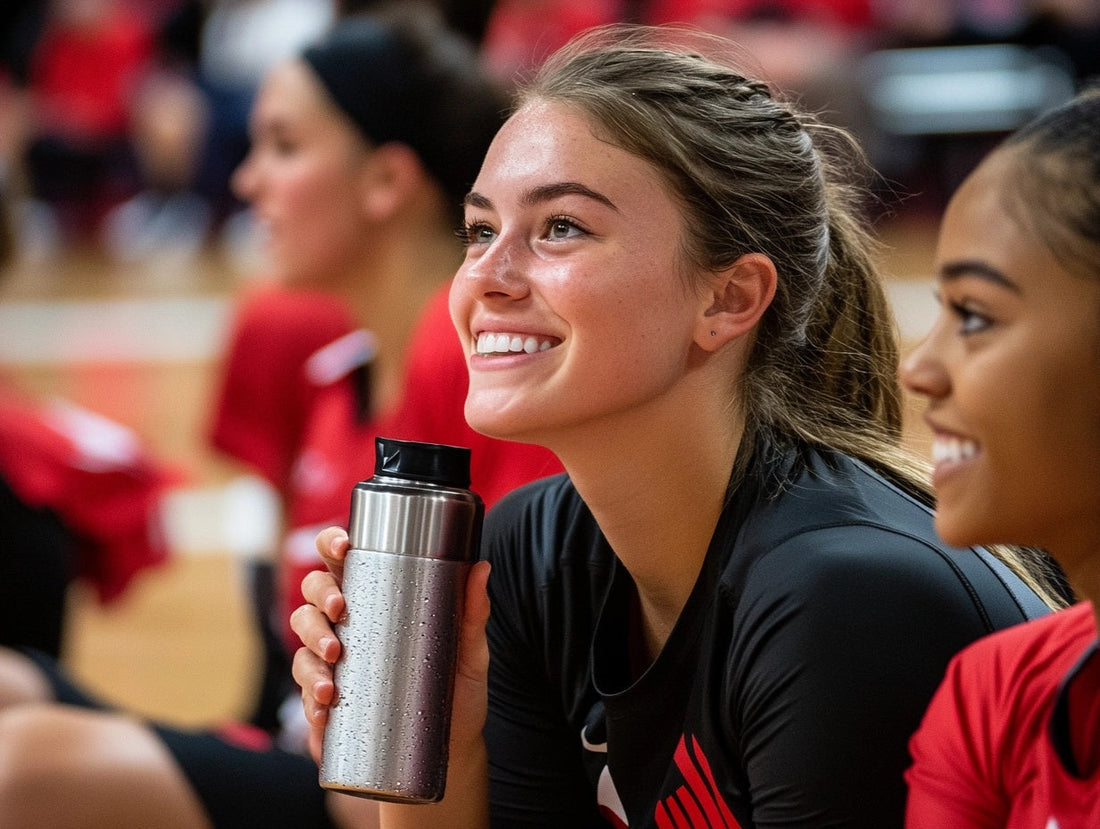
The Importance of Hydration While Playing Volleyball
Share
The Importance of Hydration While Playing Volleyball
When it comes to volleyball, players often focus on skills, strategy, and physical conditioning—but one crucial element that’s sometimes overlooked is hydration. Staying properly hydrated isn’t just about quenching your thirst; it’s essential for performance, recovery, and overall health. Whether you're playing in a hot gym or on a sunny beach court, hydration can make or break your game.
Why Hydration Matters in Volleyball
Volleyball is a fast-paced sport that involves constant movement—jumping, diving, sprinting, and quick changes in direction. These activities raise your body temperature, increase sweating, and use up fluids and electrolytes. Without proper hydration, you can quickly become fatigued, lose focus, and even increase your risk of injury.
When you're dehydrated, your blood volume drops, making it harder for your heart to pump oxygen and nutrients to your muscles. This leads to slower reactions, weaker hits, and poor decision-making—things no volleyball player wants during a tight match.
Signs of Dehydration
It’s important to recognize the early signs of dehydration before it affects your game. Watch out for:
-
Dry mouth
-
Dizziness or lightheadedness
-
Headache
-
Muscle cramps
-
Fatigue or sluggishness
-
Dark yellow urine
If you’re feeling any of these symptoms during practice or a game, it’s a sign your body needs fluids fast.
How Much Water Do You Need?
The amount of water each player needs can vary based on body size, intensity of play, temperature, and humidity. A general rule is to drink:
-
16–20 oz. of water 2–3 hours before playing
-
7–10 oz. of water 10–20 minutes before the match
-
7–10 oz. every 15–20 minutes during play
-
16–24 oz. after for every pound lost during exercise
After a match or practice, weigh yourself (if possible) and drink enough water to replace what you’ve lost in sweat. This is especially important during tournaments, when games are played back-to-back and recovery time is short.
Don’t Forget Electrolytes
While water is essential, electrolytes—like sodium, potassium, magnesium, and calcium—help regulate fluid balance and muscle function. When you sweat, you lose these key minerals, and simply drinking water may not be enough during long or intense sessions.
Sports drinks, electrolyte tablets, or snacks like bananas, oranges, and pretzels can help replenish lost electrolytes. For beach volleyball players or those training in hot climates, adding electrolytes becomes even more important.
Hydration Tips for Volleyball Players
-
Start hydrated: Don’t wait until you’re thirsty to drink. Thirst is actually a late sign of dehydration.
-
Bring a reusable water bottle and keep it courtside during games and practices.
-
Avoid sugary drinks or caffeine before playing, as they can contribute to dehydration.
-
Track your intake, especially on long practice days or during tournaments.
Final Thoughts
Hydration isn’t just a side note in your volleyball routine—it’s a game-changer. Staying properly hydrated helps you move faster, think clearer, and recover quicker. It keeps your body strong and your mind sharp, giving you an edge over opponents who may underestimate its power. So the next time you hit the court, make hydration part of your winning strategy!
